Writings from the Zen Masters
COMPILED BY PAUL REPS
PENGUIN BOOKS GREAT IDEAS
PENGUIN BOOKS
Published by the Penguin Group
Penguin Books Ltd, 80 Strand, London WC2R 0RL , England
Penguin Group (USA) Inc., 375 Hudson Street, New York, New York 10014, USA
Penguin Group (Canada), 90 Eglinton Avenue East, Suite 700, Toronto, Ontario, Canada M4P 2Y3
(a division of Pearson Penguin Canada Inc.)
Penguin Ireland, 25 St Stephens Green, Dublin 2, Ireland
(a division of Penguin Books Ltd)
Penguin Group (Australia), 250 Camberwell Road, Camberwell, Victoria 3124, Australia
(a division of Pearson Australia Group Pty Ltd)
Penguin Books India Pvt Ltd, 11 Community Centre, Panchsheel Park, New Delhi 110 017, India
Penguin Group (NZ), 67 Apollo Drive, Rosedale, North Shore 0632, New Zealand
(a division of Pearson New Zealand Ltd)
Penguin Books (South Africa) (Pty) Ltd, 24 Sturdee Avenue,
Rosebank, Johannesburg 2196, South Africa
Penguin Books Ltd, Registered Offices: 80 Strand, London WC2R 0RL , England
www.penguin.com
Taken from Zen Flesh, Zen Bones first published by Charles E. Tuttle & Co. Inc. 1957
This selection first published in Penguin Books 2009
Translation copyright Charles E. Tuttle & Co. Inc. 1957
All rights reserved
All material transcribed by Nyogen Senzaki and Paul Reps.
Illustrations to Ten Bulls by Tomikichiro Tokuriki
Published non-exclusively in Canada and by arrangement with Periplus Editions
Except in the United States of America, this book is sold subject to the condition that it shall not, by way of trade or otherwise, be lent, re-sold, hired out, or otherwise circulated without the publishers prior consent in any form of binding or cover other than that in which it is published and without a similar condition including this condition being imposed on the subsequent purchaser
ISBN: 978-0-14-195667-1
Wumen Huikai
11831260
Kaku-an Shi-en
twelfth century
Muj Dky
12271312
The Gateless Gate
By Ekai, called Mumon Wumen Huikai
Zen has no gates. The purpose of Buddhas words is to enlighten others. Therefore Zen should be gateless.
Now, how does one pass through this gateless gate? Some say that whatever enters through a gate is not family treasure, that whatever is produced by the help of another is likely to dissolve and perish.
Even such words are like raising waves in a windless sea or performing an operation upon a healthy body. If one clings to what others have said and tries to understand Zen by explanation, he is like a dunce who thinks he can beat the moon with a pole or scratch an itching foot from the outside of a shoe. It will be impossible after all.
In the year 1228 I was lecturing monks in the Ryusho temple in eastern China, and at their request I retold old koans, endeavouring to inspire their Zen spirit. I meant to use the koans as a man who picks up a piece of brick to knock at a gate, and after the gate is opened the brick is useless and is thrown away. My notes, however, were collected unexpectedly, and there were forty-nine koans, together with my comment in prose and verse concerning each, although their arrangement was not in the order of the telling. I have called the book The Gateless Gate, wishing students to read it as a guide.
If a reader is brave enough and goes straight forward in his meditation, no delusions can disturb him. He will become enlightened just as did the patriarchs in India and in China, probably even better. But if he hesitates one moment, he is as a person watching from a small window for a horseman to pass by, and in a wink he has missed seeing.
The great path has no gates,
Thousands of roads enter it.
When one passes through this gateless gate
He walks freely between heaven and earth.

1.
Joshus DogA monk asked Joshu, a Chinese Zen master: Has a dog Buddha-nature or not?
Joshu answered: Mu. [Mu is the negative symbol in Chinese, meaning No-thing or Nay.]
Mumons comment: To realize Zen one has to pass through the barrier of the patriarchs. Enlightenment always comes after the road of thinking is blocked. If you do not pass the barrier of the patriarchs or if your thinking road is not blocked, whatever you think, whatever you do, is like a tangling ghost. You may ask: What is a barrier of a patriarch? This one word, Mu, is it.
This is the barrier of Zen. If you pass through it you will see Joshu face to face. Then you can work hand in hand with the whole line of patriarchs. Is this not a pleasant thing to do?
If you want to pass this barrier, you must work through every bone in your body, through every pore of your skin, filled with this question: What is Mu? and carry it day and night. Do not believe it is the common negative symbol meaning nothing. It is not nothingness, the opposite of existence. If you really want to pass this barrier, you should feel like drinking a hot iron ball that you can neither swallow nor spit out.
Then your previous lesser knowledge disappears. As a fruit ripening in season, your subjectivity and objectivity naturally become one. It is like a dumb man who has had a dream. He knows about it but he cannot tell it.
When he enters this condition his ego-shell is crushed and he can shake the heaven and move the earth. He is like a great warrior with a sharp sword. If a Buddha stands in his way, he will cut him down; if a patriarch offers him any obstacle, he will kill him; and he will be free in his way of birth and death. He can enter any world as if it were his own playground. I will tell you how to do this with this koan:
Just concentrate your whole energy into this Mu, and do not allow any discontinuation. When you enter this Mu and there is no discontinuation, your attainment will be as a candle burning and illuminating the whole universe.
Has a dog Buddha-nature?
This is the most serious question of all.
If you say yes or no,
You lose your own Buddha-nature.

2.
Hyakujos FoxOnce when Hyakujo delivered some Zen lectures an old man attended them, unseen by the monks. At the end of each talk when the monks left so did he. But one day he remained after they had gone, and Hyakujo asked him: Who are you?
The old man replied: I am not a human being, but I was a human being when the Kashapa Buddha preached in this world. I was a Zen master and lived on this mountain. At that time one of my students asked me whether or not the enlightened man is subject to the law of causation. I answered him: The enlightened man is not subject to the law of causation. For this answer evidencing a clinging to absoluteness I became a fox for five hundred rebirths, and I am still a fox. Will you save me from this condition with your Zen words and let me get out of a foxs body? Now may I ask you: Is the enlightened man subject to the law of causation?
Hyakujo said: The enlightened man is one with the law of causation.
At the words of Hyakujo the old man was enlightened. I am emancipated, he said, paying homage with a deep bow. I am no more a fox, but I have to leave my body in my dwelling place behind this mountain. Please perform my funeral as a monk. Then he disappeared.
The next day Hyakujo gave an order through the chief monk to prepare to attend the funeral of a monk. No one was sick in the infirmary, wondered the monks. What does our teacher mean?

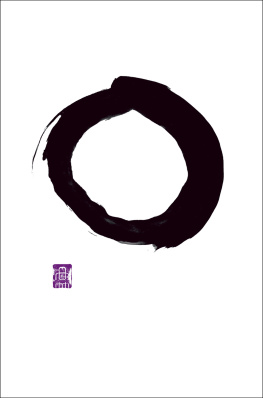

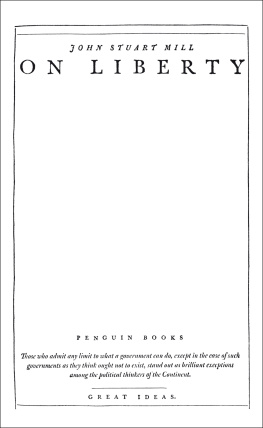
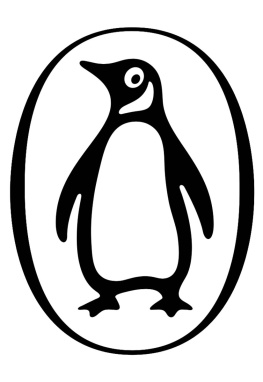
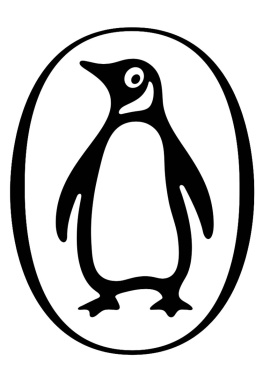


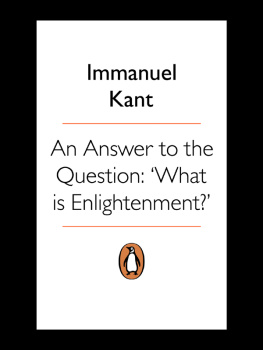
 1. Joshus Dog
1. Joshus Dog 2. Hyakujos Fox
2. Hyakujos Fox